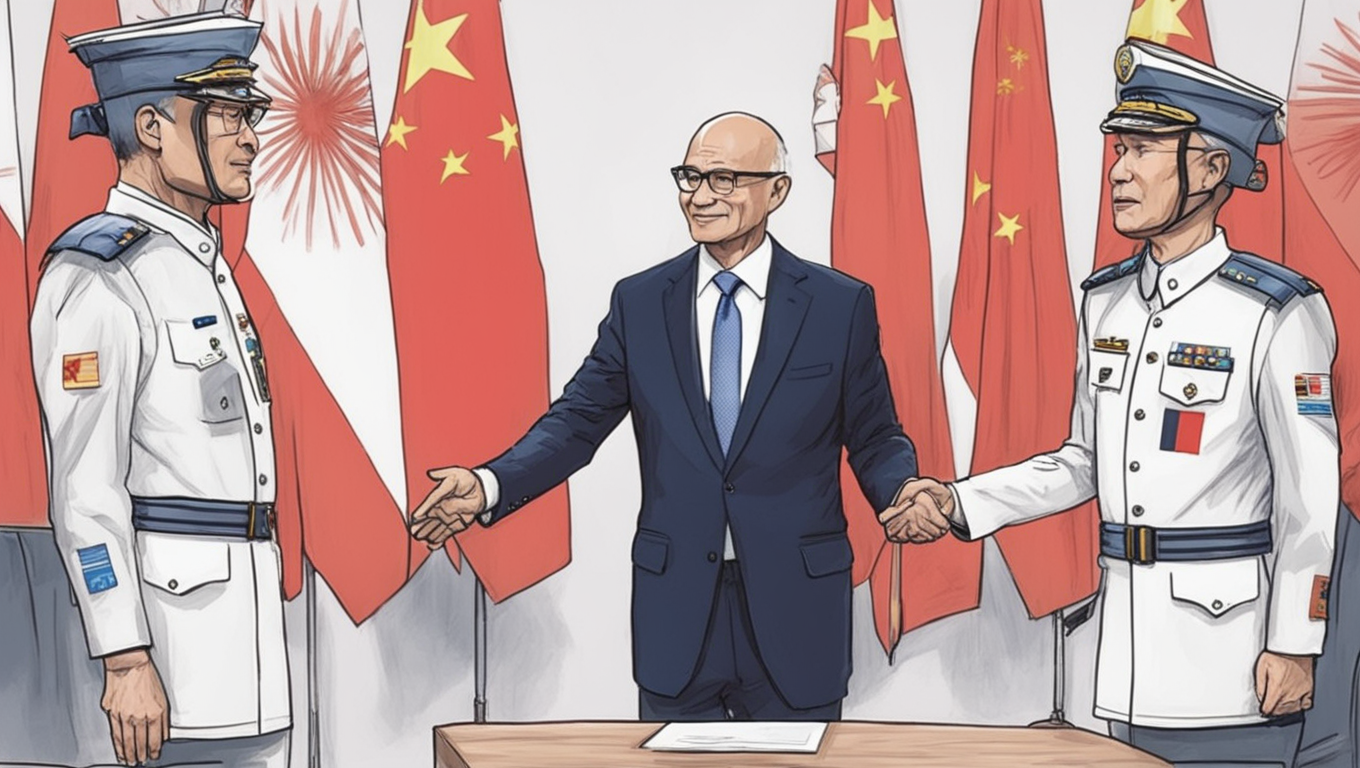Microsoft CEO Satya Nadella is advocating for China to have a role in the governance of artificial intelligence (AI), as global leaders navigate the development and regulation of the technology. Nadella joins billionaire entrepreneur Elon Musk, who made a similar call earlier this year. This stance, however, contrasts with the united front presented by Western governments, whose intelligence chiefs recently warned of the threat of Chinese tech theft. Despite concerns, Nadella believes China’s inclusion is crucial in addressing the “existential risk of a runaway AI.”
Nadella’s position is driven by both practical and business interests. China is home to Microsoft’s largest research and development center outside the United States, making it an important market for the tech giant. Additionally, Nadella recognizes AI as the biggest opportunity for Microsoft’s future. Despite ideological differences, he believes that common ground in governance is necessary to address the challenges posed by AI.
Elon Musk has also expressed his support for China’s involvement in shaping global AI rules. In discussions with US lawmakers, Musk confirmed that China is interested in working within an international framework for AI regulation. It is evident that these tech leaders see the value in partnering with China, even amid concerns about the Chinese government’s practices.
However, the push for China’s inclusion faces resistance from Western governments, who remain skeptical of China’s motives. The heads of intelligence agencies from Australia, Britain, Canada, New Zealand, and the United States recently met to discuss the threat of Chinese tech theft. In a joint appearance on “60 Minutes,” the intelligence chiefs emphasized that the Chinese government represents the defining threat of this generation. FBI Director Christopher A. Wray called on China to abide by its commitments, including not stealing innovation and refraining from exporting repression to other nations.
Despite the apprehension expressed by Western governments, tech companies like Apple are prioritizing their business interests in China. The production of “The Problem with Jon Stewart” on Apple TV reportedly came to a halt due to disagreements between the comedian and Apple executives over topics related to AI and China. This incident highlights the delicate balance tech companies must navigate when it comes to Chinese market access and addressing potential controversies.
In the ongoing debate around AI governance, Satya Nadella and Elon Musk are advocating for the inclusion of China as a key player. While Western governments remain skeptical, the tech titans believe that finding common ground in AI regulation is essential. As AI continues to evolve, the world may witness a reshaping of global governance structures to accommodate the participation of China, a country with significant influence in the development and adoption of AI technologies. Ultimately, the question is whether the benefits of collaboration outweigh the potential risks associated with China’s involvement in AI governance.





Use the share button below if you liked it.